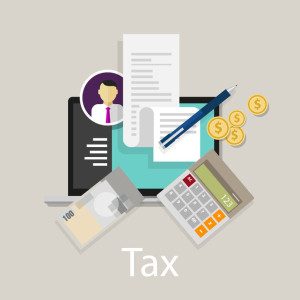 Whether you own a seasonal vacation home or offer a year-round experience, savvy owners know that in order to succeed, they must treat their rental business, well, like a business. That means tracking expenses and being aware of relevant tax deductions. It pays to do a little research to make sure you aren’t missing out on any possible tax breaks. As the end of year approaches, it’s important to be organized so that you’re not panicking come April.
Whether you own a seasonal vacation home or offer a year-round experience, savvy owners know that in order to succeed, they must treat their rental business, well, like a business. That means tracking expenses and being aware of relevant tax deductions. It pays to do a little research to make sure you aren’t missing out on any possible tax breaks. As the end of year approaches, it’s important to be organized so that you’re not panicking come April.
It helps to have a general understanding of the tax code so you can maximize tax savings. First, It’s important to understand the distinction between income tax, which you pay to the government based on your income, and lodging taxes. The latter is a tax your guests pay on the cost of renting the property from you.
So how does this work? You, as the host, don’t pay the lodging taxes, but you’re responsible for collecting the tax and remitting it to the proper agencies. There are no deductions you can claim for lodging taxes.
However, homeowners and property managers may qualify for deductions related to the Tax Cuts and Jobs Act. Here are a few:
1. Pass-through business tax deduction
Residential landlords who own their rental property via “pass-through” entities may be eligible to deduct an amount equal to 20 percent of their net rental income. This is a personal deduction that can be taken regardless if you elect to itemize.
2. Deduction for major improvements
The provisions of Section 179 of the tax code allows owners to write off the costs of certain personal property used to operate the business, up to $1 million. For example, that can apply to the costs of fire systems, security systems, roofs, and HVACs. Section 179 is applicable only to property used for rental more than 50 percent of the time, which means you can’t be an occasional host.
3. Depreciation deduction
Before the tax law took effect, you could only deduct 50 percent of the cost of personal property used for the business each year. However, under current tax law that amount is now 100 percent. This means owners can deduct the full cost of property such as appliances and furniture all in one year. The changes apply to new or used property placed into service from Sept. 27, 2017, through Dec. 31, 2022.
4. Credit card and loan interest
If you rely on credit cards or personal loans to pay for business expenses, you can deduct the cost of interest payments on those accounts. Just make sure you’re not commingling your personal and business finances, which can muddy the waters come tax time.
5. Insurance
You can deduct the cost of any insurance that covers your rental units. You may also claim a deduction for private mortgage insurance (PMI) premiums on rental property for the year they were paid. However, it’s important to note that if you prepay premiums for multiple years, you can only deduct the part of the PMI payment that applies to that year.
6. Travel and transportation expenses
When you travel on behalf of your business, you can deduct related expenses such as airfare, accommodations, mileage, meals, and more. This could include activities such as:
- Traveling to your rental property for the purpose of doing repairs or upkeep
- Continuing education related to your business
- Meetings with partners and vendors
You can also deduct mileage for travel closer to home, such as going to the hardware store. Keep in mind that any travel related to enhancements on the property needs to be classified differently on your return.
7. Home office
If you manage your rental business from a home office, you may be able to deduct related expenses such as technology, equipment, supplies, and a percentage of many of the costs of running your home.
The IRS, however, has specific criteria for how they define a home office. Per the IRS: “You must show that you use your home as your principal place of business. If you conduct business at a location outside of your home, but also use your home substantially and regularly to conduct business, you may qualify for a home office deduction. For example, if you have in-person meetings with patients, clients, or customers in your home in the normal course of your business, even though you also carry on business at another location, you can deduct your expenses for the part of your home used exclusively and regularly for business.”
In addition to tax savings, every business owner should be concerned with working smarter. Sometimes that means delegating time or labor intensive tasks to other parties. Enter Property Management Inc..We not only focus on helping you to increase the value of your portfolio, but also on all the behind-the-scenes work necessary to keep a property attractive and profitable. Leave your worries behind and let Property Management Inc.protect and maximize your investment. Contact our office today to find out more!







